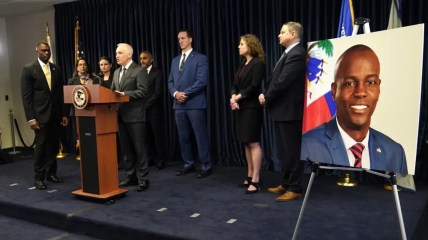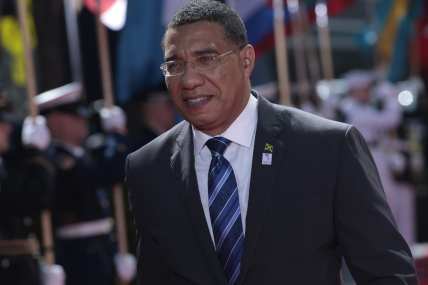Canada to deploy navy vessels to Haiti as violence worsens
Haitian Prime Minister Ariel Henry, also at the meeting, has pleaded for a full-fledged international military intervention to stem the mayhem.
Canada will send navy vessels to Haiti for intelligence-gathering as part of efforts to quell worsening gang violence in the Caribbean nation, Canadian Prime Minister Justin Trudeau announced Thursday.
Trudeau made the announcement in the Bahamas at an annual meeting of Caribbean leaders where a key topic has been Haiti’s surge in killings, rapes and kidnappings blamed on gangs emboldened since the July 2021 assassination of President Jovenel Moïse.
Haitian Prime Minister Ariel Henry, also at the meeting, has pleaded for a full-fledged international military intervention to stem the mayhem. His country requested help from the U.N. Security Council in October, and has suggested the U.S. and Canada lead a force. No such intervention has come together, and neither country has offered to take the lead.
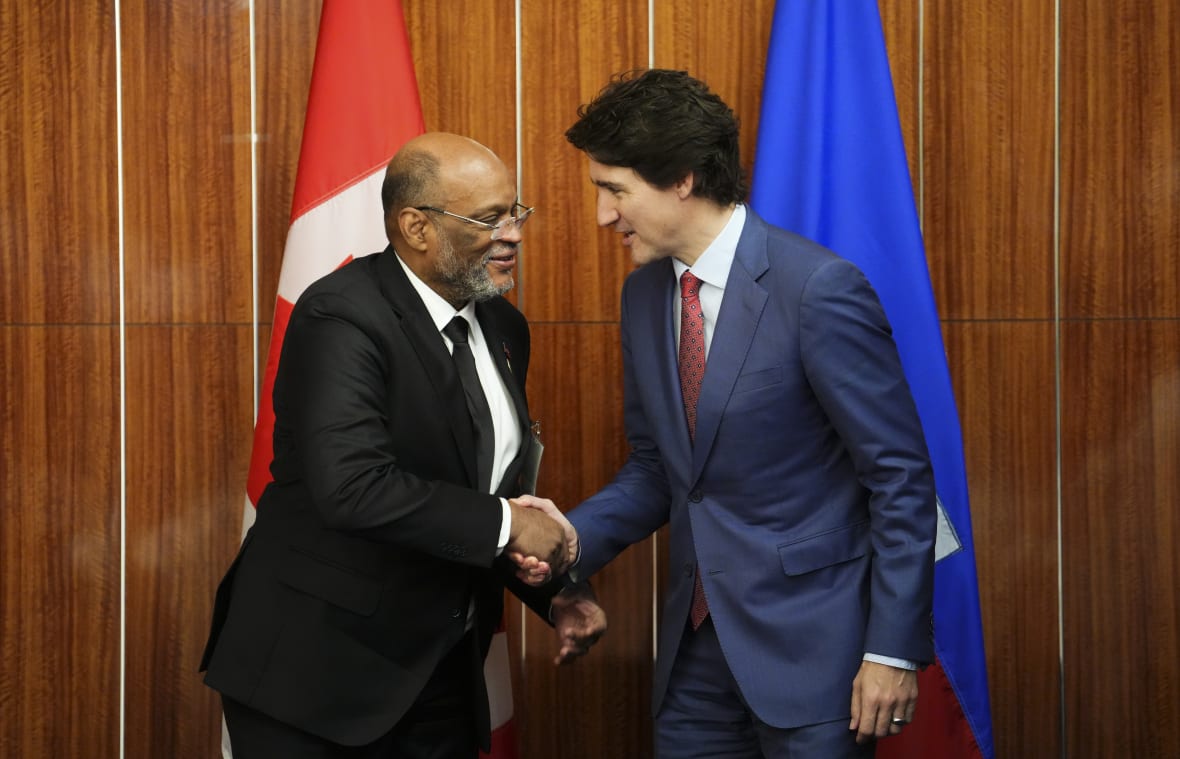
Canada’s move to send ships, announced at the meeting of leaders of the 15-member Caricom trade bloc, comes shortly after the return of one of its surveillance planes on a similar mission to collect intelligence for Haitian police.
“Right now, Haiti is confronted with unrelenting gang violence, political turmoil and corruption,” Trudeau said. “Now is the moment to come together to confront the severity of this situation.”
Trudeau said Canada and Haiti’s neighbors need to work on long-lasting solutions to restore order and security, allow for essential aid to flow and create the conditions for free and fair elections.
He also unveiled sanctions on two additional Haitians: former interim president Jocelerme Privert and ex-political aide Salim Succar. Neither could be immediately reached for comment. They join 15 others already banned from making any economic dealings in Canada amid alleged ties to gangs.
Also on Thursday, the U.S. State Department announced it had placed visa restrictions on five more Haitians and seven family members that it did not identify, saying only that they have been fomenting violence, corruption, and instability. A total of 44 people have faced U.S. restrictions since October.
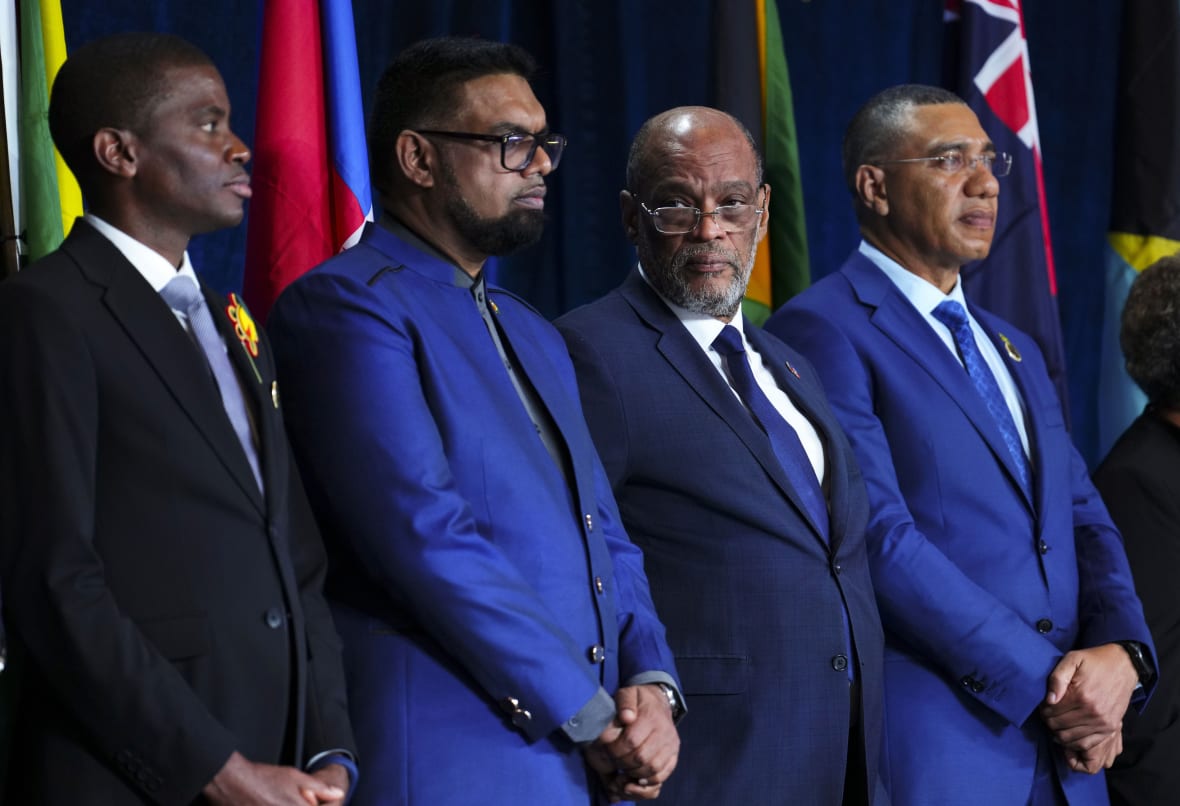
Meanwhile, the Canadian leader said his government would give an additional $12.3 million in humanitarian assistance and $10 million to support the International Office on Migration, to protect Haitian women and children along Haiti’s border with the Dominican Republic. The neighboring country has deported tens of thousands of Haitian migrants and those of Haitian ancestry in the past year.
“The toll of human suffering in Haiti weighs heavily on me,” Trudeau said.
Earlier on Thursday, Trudeau met behind closed doors with Henry, who told reporters that he urgently wants Haiti to hold elections despite the worsening insecurity.
The number of reported killings in Haiti last year increased by 35% to 2,183 victims, while the number of reported kidnappings more than doubled to 1,359 victims, according to the U.N.
A report last month from the U.N. Integrated Office in Haiti noted that “gang-related violence reached levels not seen in decades,” and that tens of thousands of people have been displaced by the warring gangs.
Canada, the U.S. and other countries already have provided military equipment and other resources, along with training, to Haiti’s National Police, which only has 9,700 active-duty officers for a country of more than 11 million people. Gangs control an estimated 60% of the capital of Port-au-Prince.
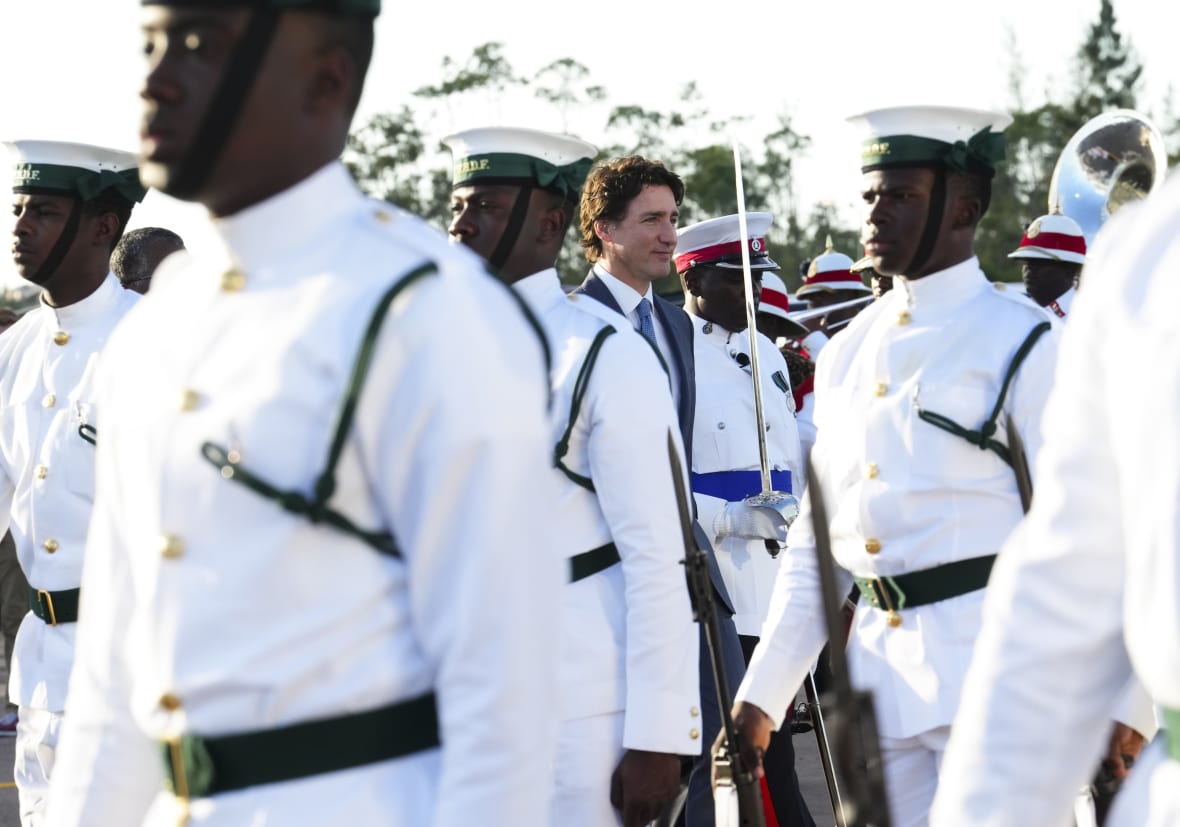
Trudeau also pledged $1.8 million to fight illegal drug trafficking and strengthen border and maritime security across the Caribbean.
In addition, Trudeau said his government will set aside $44.8 million to help the Caribbean fight climate change.
The Caricom meeting, which has drawn other officials including Brian Nichols, the U.S. assistant secretary of state for Western Hemisphere affairs, began on Wednesday and is scheduled to end on Friday.
TheGrio is FREE on your TV via Apple TV, Amazon Fire, Roku, and Android TV. Please download theGrio mobile apps today!
